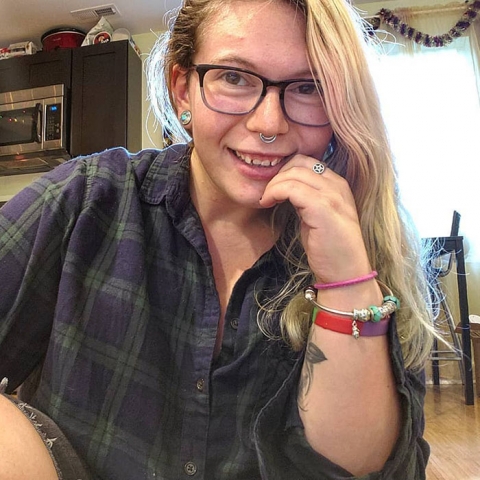Doctoral Applications
Time really has sped by me these past few months. I entered this program knowing what I wanted to write my thesis on, but I wasn’t sure what I was going to do next. I suppose that’s almost everyone’s thought process—what is next, what comes after this venture?
As a first-generation, low-income, queer college student I never saw myself as a student here at Penn. Once I was accepted, I thought that was it. This would be the end of my career. Little did I know, Penn would help shape what would be the beginning of a much longer career ahead of me. I can say this now, after I have been accepted into two of the top doctoral programs in my field in the country. The process before the acceptances were not as easy, but the support I had throughout from not only professors, but staff and students made it much easier. They helped me focus on my mental health, recognize the importance of self-care throughout the process, and work with me to understand the intricacies of the doctoral applications I just did not have prior knowledge to.
I thought it would be helpful to provide some tips and steps that I used to help guide my time here at Penn for doctoral pursuit.
- Think about your timeline: How long is your program? Are you here for one or two years? I took two years to complete my program, with hopes I would make more meaningful connections to faculty and staff here for letters of recommendation. Additionally, it helped shape what I wanted in programs. If you are here for one year, find the people who are interested in what you are doing soon. Do the research in advance. Make sure you are sending the emails out to professors not just in your department, but outside of your program as well! There is constantly research happening at GSE. Find the people who are doing what you are interested in. Or find professors who are doing work you are interested in, do an independent study. Ask to do research with them. This is normal, and people ask these kinds of questions all the time. Take up your space and ask as many questions as you need! Connect with faculty and staff early.
- Do the research: Spend the time to do the research about your program. More importantly, the people in the program. Look at publications that you are invested in. Who wrote them, and who are their citations? Find people through sources. Ask professors here at Penn! They have tons of connections all across higher education and can lead you in the right direction for a mentor and advisor that fits. Make a document and put each school with the due date, and list the program, advisor, and why you think this program and advisor are right for you. Bullet point all of the information with the school’s website now so you don’t need to come back for it later!
- Community Care: I know I mentioned self-care earlier—but community care is extremely important! Community care thrives on the idea that we are all taking care and looking after each other. As a first-generation low-income college student, the imposter syndrome and feelings of doubt I experienced during this process were not healthy for my mental wellbeing. Having that core group of friends, staff, and faculty who I know would reach out to me, and I would reach out to them made the world of a difference. They supported me every second of the way.
- Ask for letters early: Ask for your letters of recommendation early! Most applications are due in December, so try and ask for your letters of recommendation around the end of September beginning of October! Give your recommenders at least one and a half months’ notice so they have an idea of what will be on their plate. By this time, you should have a rough draft of your statement of purpose, a list of all the schools you are attending with the program and advisor of interest, and why you chose that school specifically. Reference the document you made earlier in the year.
- Trust Yourself: This process can be grueling for many people, especially those who feel as if they were not made to do this kind of work. Forget all of the noise that perpetuates those kinds of systems that say you were not meant to be here. You were. You are. Penn will help guide you through this journey. Whether you choose to continue doctoral pursuit here, or another institution, the resources and family you make here will carry on throughout the course of your life. You are worthy and your work is important. Trust yourself in whatever course of action you decide to do. If you don’t think a PhD is for you—question why you think that and question the institutions that want you to believe that. If you want to do work elsewhere, trust yourself and know that you can do amazing work wherever you go. Your self-worth cannot be determined by the papers you publish, or the name you make for yourself in academia. Trust yourself as however whole you are now.
Hopefully these five points will help guide you through your journey of PhD applications while at Penn. The main takeaway here is for you to find your people. Find your community that supports your in any venture you decide to take and uplifts your voice. Use that support to motivate you to apply to those programs, and lean on faculty, staff, and your peers when needed. Trust yourself. You got this!

